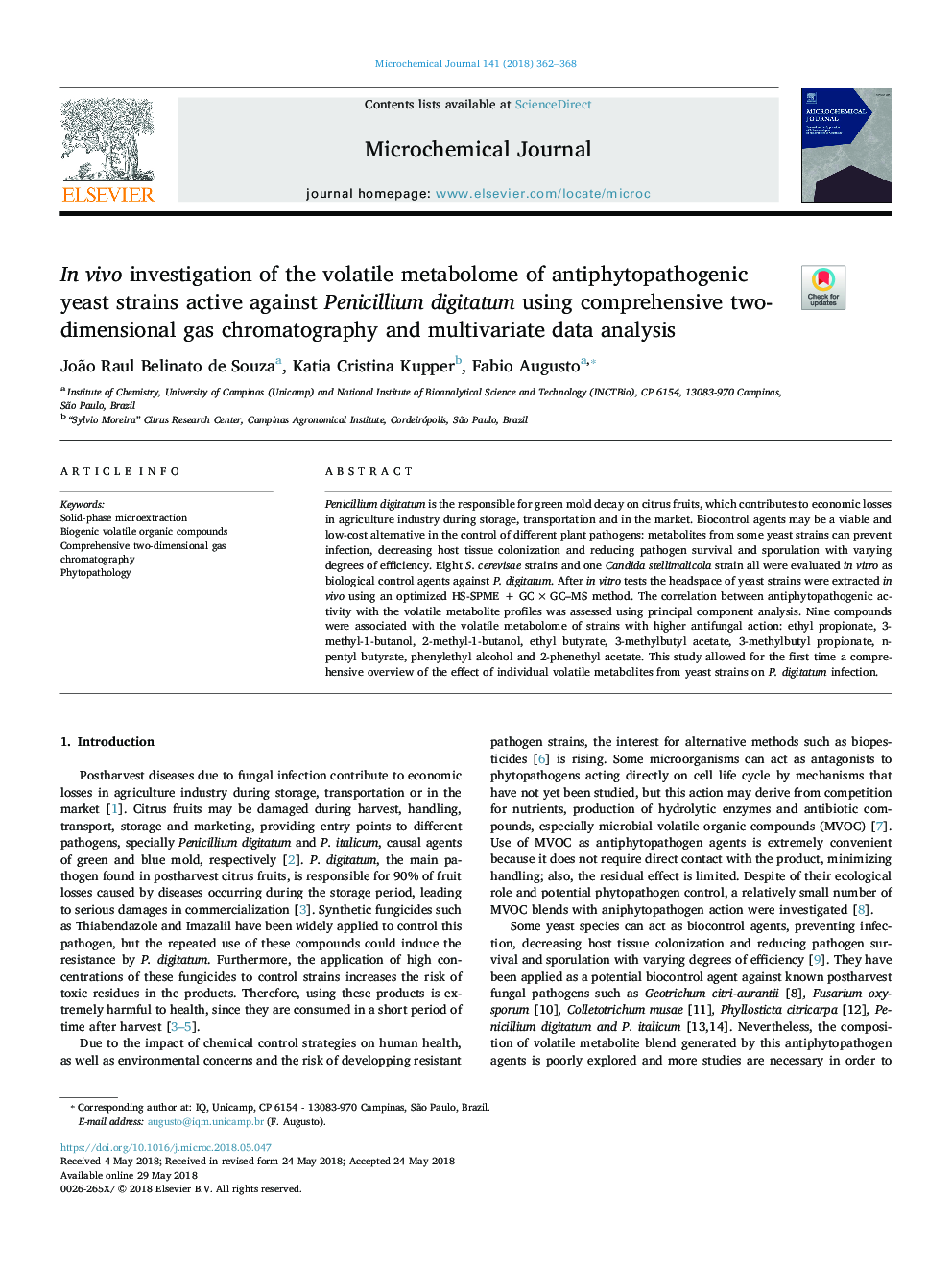| Article ID | Journal | Published Year | Pages | File Type |
|---|---|---|---|---|
| 7640395 | Microchemical Journal | 2018 | 7 Pages |
Abstract
Penicillium digitatum is the responsible for green mold decay on citrus fruits, which contributes to economic losses in agriculture industry during storage, transportation and in the market. Biocontrol agents may be a viable and low-cost alternative in the control of different plant pathogens: metabolites from some yeast strains can prevent infection, decreasing host tissue colonization and reducing pathogen survival and sporulation with varying degrees of efficiency. Eight S. cerevisae strains and one Candida stellimalicola strain all were evaluated in vitro as biological control agents against P. digitatum. After in vitro tests the headspace of yeast strains were extracted in vivo using an optimized HS-SPME + GCâ¯Ãâ¯GC-MS method. The correlation between antiphytopathogenic activity with the volatile metabolite profiles was assessed using principal component analysis. Nine compounds were associated with the volatile metabolome of strains with higher antifungal action: ethyl propionate, 3-methyl-1-butanol, 2-methyl-1-butanol, ethyl butyrate, 3-methylbutyl acetate, 3-methylbutyl propionate, n-pentyl butyrate, phenylethyl alcohol and 2-phenethyl acetate. This study allowed for the first time a comprehensive overview of the effect of individual volatile metabolites from yeast strains on P. digitatum infection.
Keywords
Related Topics
Physical Sciences and Engineering
Chemistry
Analytical Chemistry
Authors
João Raul Belinato de Souza, Katia Cristina Kupper, Fabio Augusto,
